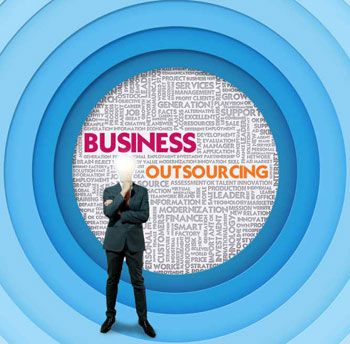International outsourcing has become widely accepted as a means to reduce operational costs, improve efficiency, and achieve a competitive edge. Hiring support services for non-core tasks also allows more time to focus on core activities. Regardless of the pros of international outsourcing, the practice is not without challenges and one that has been attracting a lot of attention in recent times is international commercial disputes in outsourcing agreements.

A global survey of executives conducted by The Economist Intelligence Unit (EIU), in association with global law firm Reed Smith in 2013 found that one out of four companies was embroiled in an international commercial dispute during the two years preceding the study. Breach of contract due to misinterpretation of the agreements was cited as the most common reason for the disputes. Infrastructure, and more importantly, technology issues and theft of corporate intellectual property (IP) have high potential for misinterpretation resulting in long-drawn disputes.
Mitigating the impact of these commercial disputes is crucial to the health of outsourcing.
Ways to Mitigate the Impact of Outsourcing Agreement Disputes
- Insist on clarity at the time of execution of the contract. This can mitigate the risk of costly disputes to a certain extent. The contract should clearly represent the promises made by both parties during the contractual period.
- Define performance standards so that the service provider will understand the results that are expected.
- Outsourcing contracts often state that the parties can recover only “direct damages” and not “consequential” ones. However, case law is often unclear about the differences between these damages. Therefore, specifying clearly as to what constitutes ‘direct’ and ‘consequential’ damage at the outset is important. Likewise, examples of ‘material breach’ should also be provided in the contract.
- Beware of open-ended terms such as one that allows the parties to reach an agreement on something after signing. If open-ended terms cannot be avoided, it is advisable to mention in the contract that the parties will be bound by the decision of an arbitrator or industry expert supplying the missing agreement after hearing the arguments of both parties.
Mechanism to Resolve Disputes
The potential impact of disputes can be lessened by deciding on the mechanism to resolve them. It is generally assumed that the case will be dealt with in a court in the outsourcing location. However, this may not be a feasible solution as many offshore locations have relatively ineffective intellectual property laws. Moreover, they may also lack mature legal systems.
Arbitration is another popular alternative to resolve complicated legal or technological issues. The main advantage is that arbitration allows the concerned parties to select what laws or even non-legal standards will be applied to resolve the dispute and also who will make the final decision – this could be a retired judge or an industry expert. A lot of time and expense can also be saved with arbitration compared to having the case heard in a national court.
To summarize, offshore BPO is undoubtedly a powerful means of streamlining business functions for enormous cost savings, increased efficiency and enhanced service quality. However, outsourcing comes with a host of risks, these should be properly understood and managed. Objective vendor selection is crucial. Careful evaluation of the issues involved can help mitigate contractual risks for a successful relationship between the BPO company and its customer.



